CNIC: Exporting talent around the world
CNIC is a center of excellence that has consolidated its role as a reference in training young scientists, through its scholarship and training programs in biomedicine. Since 2006 its initiatives have enhanced the careers of more than 600 students, facilitating their access to cutting-edge research and professional development in the scientific field.
Cicerone Program: The first access to research
El Programa Cicerone, dirigido a estudiantes universitarios, ha contado hasta la fecha con la participación de 431 jóvenes desde su creación en 2006. Esta iniciativa ofrece una experiencia de inmersión en laboratorios de investigación durante los meses de verano, proporcionando una primera toma de contacto con la ciencia biomédica en un entorno de excelencia.
Master’s Scholarships: A bridge to specialization
Since 2008, the CNIC has awarded 159 Master’s scholarships, providing financial support for studies in biomedicine. In addition to theoretical training, the beneficiaries do their internship and develop their thesis project at the CNIC, acquiring key experience for their professional future.
Impact on doctoral training and professional development
The CNIC’s commitment in the training of young researchers is reflected in the 247 doctorates that were completed between 2006 y 2024. The long-term impact of these programs can be appreciated in the fact that the 102 people who participated in the Ciceron Program obtained a Master’s scholarship at the CNIC. Of these 102, 71 of them (71%) continued a career as predoctoral researchers at the center. Furthermore, 47 of them, have already successfully defended their doctoral thesis and 24 of them are still working on them.
Additionally, the CNIC has followed-up on 232 doctors trained at the center, all of whom, have achieved promising results in the job market. 162 have continued their career in research, 19 have obtained job positions as professors or group leaders and 70 have taken their talent to the biomedical industry, contributing to the development of new solutions in this sector.
This data confirms the CNIC’s key role in the training and consolidation of a new generation of scientists, ensuring the continuity of talent in biomedical research and its impact on society.
Amelia Escolano, group leader in Vaccine & Immunotherapy at the Wistar Center in Philadelphia (USA):
“Day after day, I keep on applying everything I learned at the CNIC”
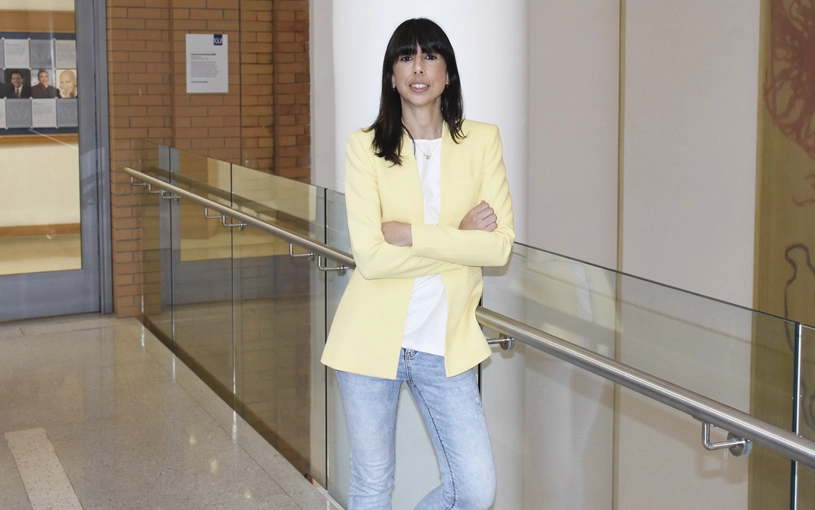
Amelia Escolano completed her pre-doctoral studies at the CNIC, in Juan Miguel Redondo’s laboratory, which was “essential in order to develop my career as a researcher”. There she acquired the necessary knowledge in molecular biology, biochemistry and immunology for the next steps of her training, but also to “acquire the scientific independence and maturity needed to confront my post-doctoral training”.
Amelia recognizes how much she learned from Dr. Redondo’s team, and how it benefited her scientific career, learning about professional ethics and what it means to have a good mentor.
It was during the COVID-19 pandemic when she started her independent laboratory, a period in which she had the opportunity to prepare herself for that transition. She says the new position “involves new activities and responsibilities”. She remembers that the most difficult thing was “the responsibility of knowing that my team and its future professionals depended on me, financially and scientifically. The pressure to obtain funding is something that worries us all.”
Amelia continues collaborating with many people who were or are at the CNIC, like Dr. Almudena Ramiro.
Her laboratory is currently working on the design of vaccines for HIV. “We work with molecular biology, animal models, structural biology and AI. Although I now focus on vaccines and immune response, I continue applying and sharing what I learned at the CNIC.”
From her experience, Amelia advises new researchers to “trust themselves and their training, fight and be proactive in order to find their place and not be intimidated. Work hard, to keep at it even though they may think about quitting sometimes, to expand their network of collaborators and connections and above all, to never stop enjoying science.”
Rosario Fernández Godino, director of the Target Screening and Validation area at the MEDINA Foundation:
“The techniques of cellular biology that I developed at the CNIC were the basis for the advanced models of my postdoctoral studies”
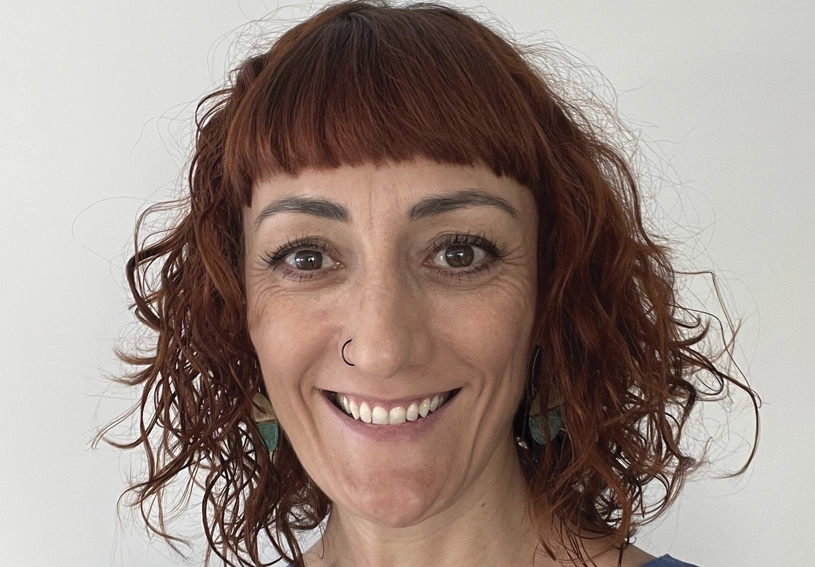
Rosario, who has directed the Target Screening and Validation area at the MEDINA foundation since 2022, states that her first real contact with a research center was at the CNIC.
The step from leading her own group or developing a new line of independent research she recalls that the “most difficult thing is to obtain funding, but also to find competent people. When you are an emerging researcher, you have to do it all: be at the laboratory, write projects, write articles, etc., and it’s very stressful”.
Rosario is currently working on discovering new pharmaceutical drugs, targeted towards cancer, neurodegenerative diseases, and new antibiotics. Nonetheless, she claims that “the techniques of cellular biology that I developed during my PhD at the CNIC were the seed for the advanced models that I created afterwards during my postdoc”.
To those who want to dedicate themselves to research, she advises them to “have innovative ideas”, but also “know how to transmit them and be able to establish objectives and the experimental design in a clear way. This is the best way for the projects to receive funding.”
In her opinion, “having experience abroad is essential; it’s important to see how work is done abroad and to broaden horizons beyond the place where the thesis was carried out”.
Rafael Mayoral Monibas, Associate Director, Translational Science, R&D Corcept Therapeutics:
“The path to research leadership requires time, dedication and continuous learning”
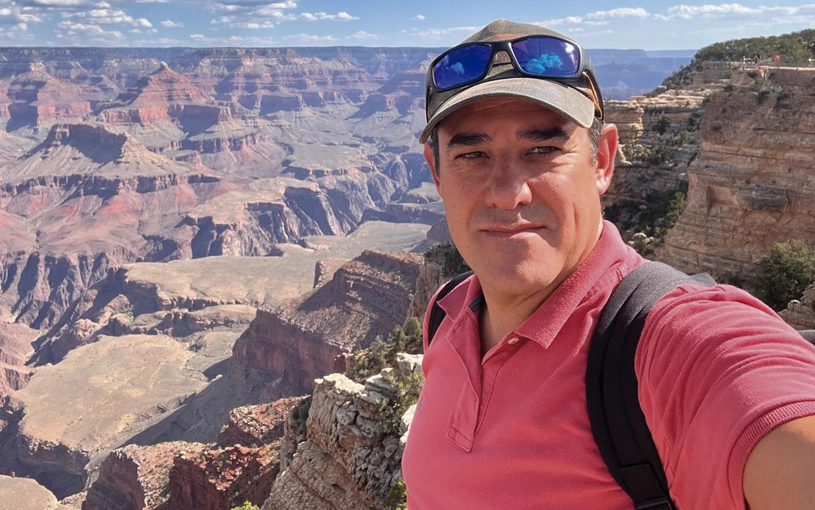
The CNIC was essential for the development of my scientific skills, says Rafael. “Thanks to my mentors – Paloma Martín-Sanz and Lisardo Boscá Gomar, I developed critical thinking and scientific rigor which are essential in my research”. At the CNIC, I experienced the transition to open spaces, promoting collaboration, which is crucial in research today”.
His transition from researcher to leading and developing a line of research, as well as coordinating the development of a PhD thesis or managing a team, has presented him with many challenges “I had to develop management, leadership and strategic decision-making skills, which are essential, but not frequently taught in scientific training. This experience has helped me grow and expand my vision of research.”
Rafael has continued to collaborate with CNIC researchers throughout his career, participating in CIBERehd projects and maintaining contact with CNIC staff, like Andrés Hidalgo.
He is currently developing a line of research in the field of MASH (metabolic dysfunction-associated steatohepatitis). “My work connects preclinical research and clinical trials, focusing on the miricorilant compound, a selective modulator of the glucocorticoid receptor. My predoctoral experiences at the CNIC, which focused on hepatic inflammation and metabolic diseases, were essential for my current job.”
Rafael comments that the path to leadership in research requires time, dedication and continuous learning. “It’s crucial to choose an area that generates passion, because a scientific career demands long-term commitment and the capacity to overcome several obstacles. Collaboration and teamwork are key in leading scientific projects. During training, international stays broaden perspectives and promote valuable connections. To build a solid career, it’s essential to apply critical thinking, scientific rigor and focus on long-term objectives. Furthermore, skills such as communication, project management and mentoring are essential when leading a team or research project.
Teresa Rayon, leader of the Comparative Stem Cell Dynamics Laboratory at the Babraham Institute:
“My training at the CNIC was key to becoming the scientist I have become”
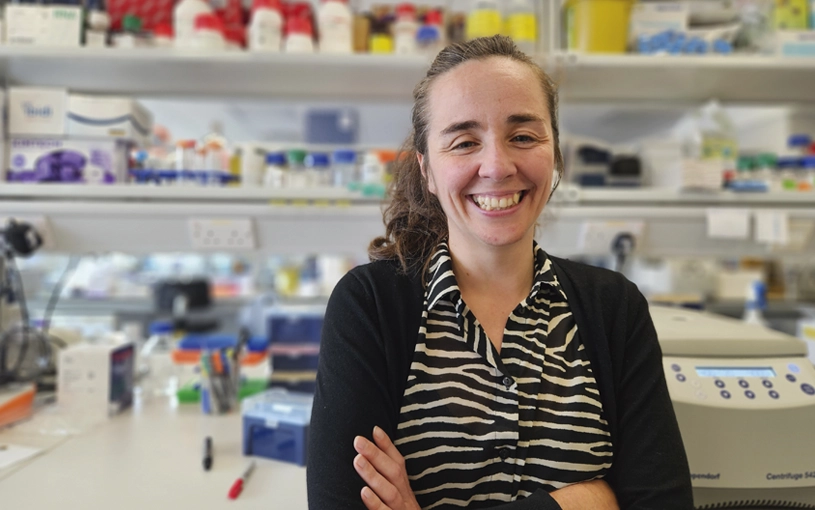
Teresa started her PhD at the CNIC in 2008 in “Vertebrate Developmental Biology”, under the direction of Miguel Torres, and finished it in 2014 in “Regenerative Biology”, in the program that was directed by Miguel Manzanares. “My training at the CNIC was key to becoming the scientist I have become and has influenced how I direct my own group of research. In addition to establishing my scientific skills, the collaborative work structure and access to resources were also essential.”
She remembers the department’s Friday seminars from her training period; “they were a key experience, where I could present and discuss my results with colleagues and group leaders. During those years I learned what it meant to “do science” and the importance of scientific integrity, reproducibility, and experimental rigor. The training seminars taught by Simon Bartlett, on how to revise scientific articles and do presentations in English, were also essential”.
She chose an Institute that maintains the same philosophy and culture of excellence as the CNIC or the Francis Crick Institute: “my laboratory shares space in a large laboratory and the PhD students participate in a PhD program that includes seminars about integrity and replicability, among others”.
The biggest challenge for Teresa was going from being responsible for one or two projects to being the supervisor of many. “You stop becoming the person who carries out the experiments and analyzes the data, and your role becomes that of supporting your group members in the daily development of the projects, maintaining their interest, helping them analyze, interpret and put the new results in perspective in order to design the next step. I will never forget the first time that I saw one of my group members present and carry out a project he made his own; a project which originally only existed in my head. It was a very emotional experience”.
Furthermore, there is a great deal of management work that group leaders need to do, something that she had no idea about when she first started out. “This part of the job is crucial, but it often goes unnoticed. At first, you feel like you don’t know how to manage these aspects, because you’ve never been trained for them. Luckily, most of these tasks can be accomplished with common sense, and decisions are rarely taken on an individual basis.Despite not having any direct collaborations with the CNIC, Teresa maintains direct contact with former colleagues of the CNIC. “A very high proportion of the PhD students from my time have gone on to forming their own independent research groups, and the training and common interests that we share allow us to keep on collaborating on our projects”.
“My passion is mammalian developmental biology, and I learned a lot about it at the CNIC. Moreover, it’s where I started working on mouse stem cells (embryonic stem cells), which allowed me to develop my postdoctoral project at the Francis Crick Institute in London in James Briscoe’s laboratory”. In his laboratory, “Comparative stem cell dynamics”, they try to understand the molecular mechanisms that measure time in animals and find out if they are the same as those that determine life expectancy.To future researchers, she recommends “reading a lot”, and that they dedicate “time to design the best experiment to answer their questions, and that they try to answer the questions that they consider important, regardless of the techniques or trends”. She also advises them to “speak a lot about the results and experiments with colleagues, and help others with their experiments, because science cannot be done in isolation”.
Bárbara López Terán, Xaira Therapeutics:
“The scientific career is a marathon, and enjoying the race makes it easier to reach the finish line”
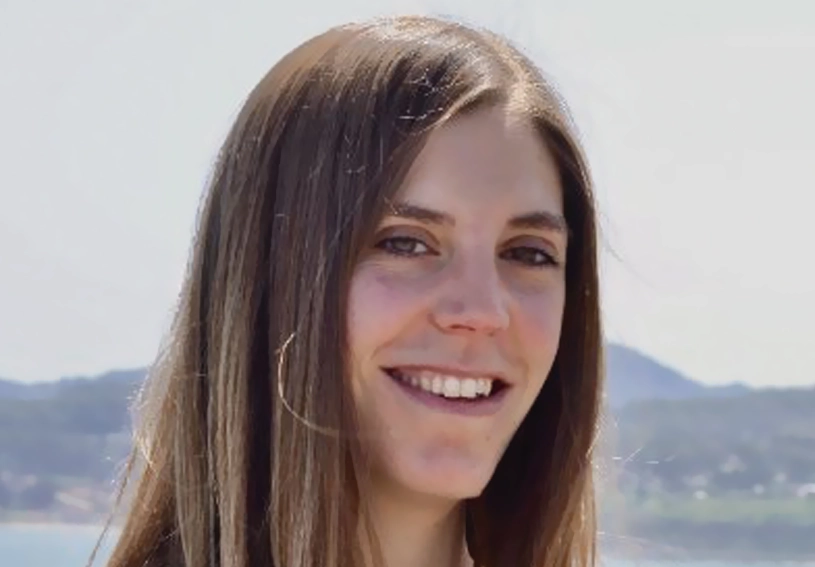
Barbara completed her Master’s and Doctoral studies at the CNIC, where, surrounded by high-level scientists and with access to top notch facilities and the latest technologies, she was able to develop her career as a scientist at an internationally competitive level. She highlights the support of the center’s management in initiatives promoted by the PhD students themselves, such as the opportunity she had to coordinate the first edition of CNIC’s PhD Day, which allowed her to cultivate leadership skills. “The combination of a high-quality scientific training and the promotion of leadership was key to helping me become a competitive figure in international science.”
Bárbara, who currently works at Xaira Therapeutics, had to make the transition from purely academic research to the adjustment of doing science in the industry, at a start-up, where, although the techniques are still the same, the strategy of how to do science is completely different. In an environment such as this, she says “you need to obtain results in a much shorter time frame, focusing on very concrete objectives, which can constantly change according to factors that are not exclusively scientific, like the market needs or investments available”.
Moreover, she says that moving from being a researcher to leading her own group, involved taking on new responsibilities in managing the team and resources, which also challenged her to balance the scientific part with the administrative part. “I had to learn how to make strategic decisions quickly, adapt to a more dynamic environment, and manage expectations, both within the team as well as with the external stakeholders. These challenges made me grow as a leader and establish my own line of independent research”.
Currently, her team is part of the Early Discovery division, where they focus on using the most advanced technologies available in genomics and proteomics, alongside more standard experimental techniques, to study the mechanisms of action of therapeutic targets of interest. “The objective is to generate data which can support the decision of whether or not these targets should enter the company’s drug development pipeline”
Her experience at the CNIC, especially in the study of cardiovascular diseases, using cellular and animal models, together with the rigorous scientific training she received there, have been key to being able to support and interpret the results of these projects. “The deep understanding of molecular mechanisms that I acquired at the CNIC has allowed me to apply this knowledge to a research context that is more oriented towards therapy, where the challenge is to translate basic discoveries to clinical applications”.
She advises those researchers who are training at the CNIC to focus on a scientific topic that they really enjoy. The scientific career is a marathon, and enjoying the race makes it easier to reach the finish line. Working at other laboratories and getting out of your comfort zone allows you to learn and to grow. There are many ways to have a successful career, both in academia and in industry, the important thing is to keep an open mind”.
José Ángel Nicolás, Cardiovascular Research Institute of the UCSF:
“Nobody is born a leader, nor does one become one overnight”
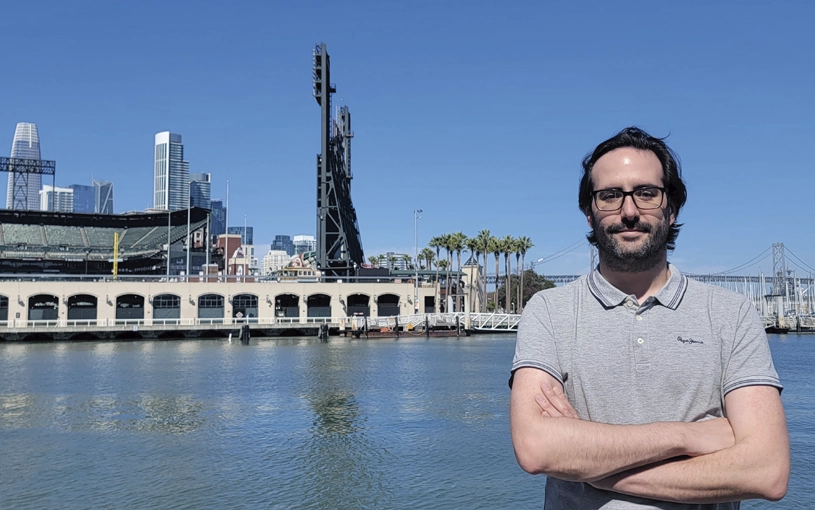
For Jose Ángel Nicolás, his training at the CNIC was essential for his development as a scientist. “I came to this institution in 2013, just after completing my Degree in Biology, to complete a stay through the CICERONE program. There I met Andrés Hidalgo’s group, with whom I continued my training through a CNIC Master’s degree and a doctorate funded by a FPI Severo Ochoa scholarship”.
Each one of these stages at the CNIC have allowed him to acquire the experience, knowledge and skills necessary to do high-level science. Moreover, he highlights that the interaction with leading researchers of various subjects has broadened his scientific perspective and has taught him the importance of collaboration and critical thinking. Additionally, “the access to advanced technologies allowed me to address innovative questions with unique depth and efficiency”.
In terms of leadership, he asserts that his progressive career at the CNIC allowed him to develop key skills, like project management, mentoring students, and effective scientific communication. “I learned from great mentors, both inside and outside of my group, who guided me through each transition as a researcher in training, and they became role models for my professional growth. The opportunity to apply and perfect these skills in a natural and progressive way throughout my years at the CNIC, has been essential in my evolution to become the leader of my own group”.
After leaving the CNIC for the Cardiovascular Research Institute of the UCSF, defining an independent line of research was the least of his problems; “there are many questions that I am passionate about and that I feel comfortable and motivated to work on. However, the most drastic change has been in my daily work dynamic”.
Ángel says that the transition from researcher to group leader has been a “significant challenge, sometimes even frustrating, but also an opportunity to grown on multiple levels”.
One of the biggest challenges, he adds “has been balancing scientific tasks with administrative and management responsibilities. As a leader, I discovered that obligations such as bureaucracy, management and meetings take up a lot of time, which makes it harder to be in the laboratory and miss those moments that make us fall in love with science”.
Even so, leading a group has enormous rewards. “Making decisions about the direction of the research, strategically managing resources and contributing to the development of the team is extremely gratifying. For me, being a good leader isn’t only about managing projects, it’s also about inspiring confidence, promoting the professional growth of each member and creating an environment where everyone finds the motivation to give their best”.
His laboratory researches the role of the immune cells in the function of healthy tissues, with a particular focus on cardiac macrophages. “These projects emerged from studies that I conducted at the CNIC”. This project, he adds “was made possible thanks to the chance I had to develop myself in a highly interdisciplinary environment at the CNIC, where I was able to integrate knowledge of immunology, cardiology, metabolism and cellular biology to address completely new questions about the role of macrophages in tissue health.”
Nobody is born a leader, nor does one become one overnight, Ángel warns. To those who are currently at the CNIC, he says “you are lucky to be in an exceptional center where you can grow, train and develop yourselves as scientists. Take advantage of this opportunity: ask for advice, learn from the great researchers who surround you and work towards your goals progressively, with foresight and determination”.
Macarena Fernández Chacón, Vice Dean of the Faculty of Health Sciences and Coordinator of the Degree in Biotechnology and Department of Health and Biomedical Sciences of the University of Loyola (Seville):
“I’m in the process of finding the right balance between the administrative tasks and research”
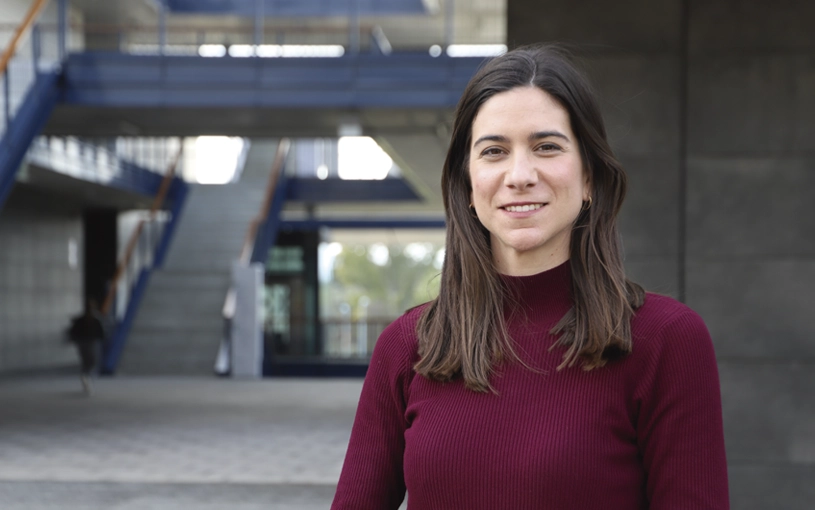
Macarena acknowledges that the training at the CNIC was key to her scientific and professional development. She says that working in an environment of excellence “allowed me to learn from international leaders, understand the importance of multidisciplinarity and address complex research questions with innovative approaches”. Moreover, thanks to the CNIC’s Units and Services, she was able to receive training in the use of advanced technologies, essential for the development of her research projects.
But she also points out that the CNIC was key to reaching her current position as group leader, from managing projects to organizing teamwork, to communicating ideas effectively and making strategic research decisions. “All of this was essential for me to lead my own research group at the University of Loyola Andalucia, where I apply not only the knowledge I acquired, but also the values of rigor, innovation and collaboration that I internalized at the CNIC”.
In her new job position, Macarena assures that one of her biggest challenges has been designing long-term research strategies, but managing resources and searching for funding are also important challenges. “I’m in the process of finding the right balance between the administrative tasks and research”.She maintains collaborations with researchers from the CNIC or those who trained there and are now in other centers or countries. In fact, she states “many of my international collaborations are former CNIC colleagues who now have their own research groups”.
Her team is focused on understanding the role of the endothelium in the calcification of the aortic valve, a serious problem in cardiovascular health, for which there are still no effective therapies. “This line of research comes from my training and experience studying endothelial heterogeneity in Dr. Rui Benedito’s group, as well as from my current collaboration with Dr. Antonio Ordoñez, professor and cardiovascular surgeon at Virgen del Rocio Hospital (Seville).
From her time at the CNIC she recalls the unique environment there. “It’s a privilege being able to train there”, she says. That’s why she advises those who are now starting their career in research to “make the most of this environment at the CNIC, which offers exceptional resources, a collaborative work environment and the possibility to learn from top notch scientists”. She also recommends “developing critical thinking, learning to formulate relevant questions, and above all, not being afraid to step outside your comfort zone”.
And, while considering that the career of a researcher is full of challenges and moments of uncertainty, she affirms that every obstacle is a learning opportunity. “It’s important to be perseverant, stay motivated and surround yourself with good mentors and collaborators”.
Juanma González-Rosa, Assistant Professor at Boston College and Affiliated with Harvard Medical School
“My doctoral training at the CNIC was the most important and influential phase in the development of my career”
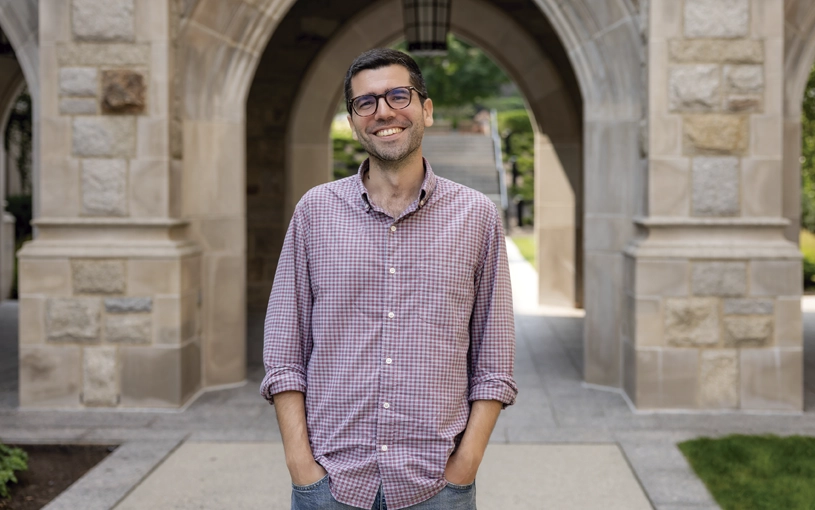
For Juanma, his doctoral training at the CNIC represented the most decisive phase in his professional career. “It has also been, by far, the most gratifying and stimulating.”
His connection with the CNIC started in 2008 as a student of the Cicerone Program and he later became Nadia Mercader’s first doctoral student in the Department of Cardiovascular Developmental Biology. “During this period, I was exposed to high-level science in a collaborative and dynamic environment. I learned from seminars with leading researchers and discussed my work with them. The most influential aspect was the atmosphere of excellence, which has shaped my way of working, a decade later.”
Juanma considers that joining the CNIC was one of his best decisions. “I feel very lucky: this experience was essential to launch my career as a scientist and take off with an extraordinary foundation.”
However, he highlights that the transition from researcher to group leader involves significant challenges. “Going from being focused exclusively on your research to leading a group is a very difficult transition. After years of preparing to be a researcher, you suddenly need to take on duties that you were not trained for, like managing a team, resolving conflicts and ensuring funding. You become a leader and a promoter of your science. It’s an exciting challenge, but the transition is difficult.”
Although, he is currently in contact with some CNIC researchers, he’d like to strengthen these collaborations further. “I firmly believe that there are many synergies and collaborations left to explore, and I feel very attached to the center, as my alma mater.”
Juanma’s work is closely linked to his studies at the CNIC, focusing on identifying the mechanisms that enable the regeneration of the heart in zebrafish. “We want to learn from nature and evolution on how to regenerate the heart, especially by eliminating the fibrotic tissue. This was an observation from my thesis at the CNIC and it’s still key in our projects. We are interested in understanding the role of the immune system and its communication with the fibroblasts in this process.”
Moreover, his scientific approach is based on a quote from Nobel prize winner Sydney Brenner: “Progress in science depends on new techniques, new discoveries and new ideas, probably in that order.” With this premise, his laboratory constantly seeks to overcome technical barriers.
For new scientists, Juanma emphasizes that research is “a long-distance race, extremely tough, but also very gratifying, at times.” He’d like to remind his students that being a researcher is a vocation for discovery. “I would advise them to build a network of mentors that guide them, and to enjoy the whole process, not just the end goal, as daily effort is the key to success.”
Yamilee Hurtado Roca, Scientific University of the South, Lima.
“The CNIC was a fundamental pillar in the development of my scientific abilities and in my evolution as a research leader”
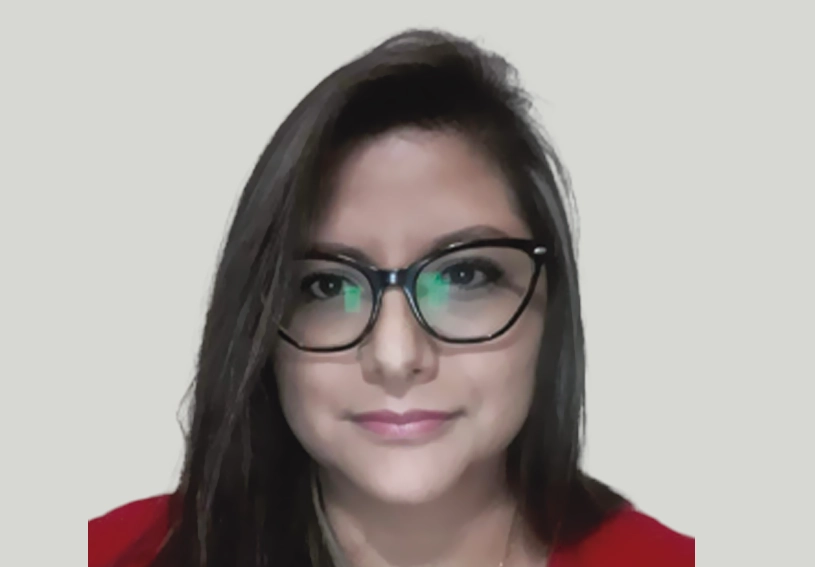
For Yamilee, the training at the CNIC was a fundamental pillar in the development of her scientific abilities and in her evolution as a research leader. “I had the opportunity to work in a highly-specialized environment, where I could strengthen my abilities in the design and execution of biomedical research projects.”
Furthermore, the CNIC’s methodological rigor and innovative approach, allowed her to perfect her capacity to interpret results and find solutions to complex scientific problems.
From a leadership point of view, the training she received a the CNIC provided her with the tools needed to coordinate multidisciplinary teams, manage research projects and promote effective communication within a collaborative environment.
After her time at the CNIC, Yamilee has expanded her focus towards public health in Peru, leading management departments in research, development and innovation in the health sector. “I have taken on strategic responsibilities, like defining national health research priorities for Peru by 2030, thus contributing to health research in my country”.
Her main lines of research focus on maternal health, women’s health, non-communicable diseases and environmental health, with a focus on both clinical and public policy development. “These areas of interest emerged mainly from my experience at the CNIC, where I acquired an integral vision of the risk factors and the importance of health prevention”, she assures. Although she currently does not have any active collaborations with the CNIC, she acknowledges that the experience and learning she acquired there have been vital in her development as a researcher. She has created a network of contacts with national and international researchers with whom she collaborates on projects aimed at finding innovative solutions for public health challenges. To the young researchers at the CNIC who aspire to lead projects and teams, she recommends that they focus both on strengthening their scientific foundation, and developing their management and leadership skills. She highlights the importance of combining rigorous training in public health, clinical research and advanced methodologies with the ability to work in multidisciplinary and international environments.
She also emphasizes the need to take advantage of every opportunity to learn from the experts, seek mentorship and fearlessly take on new challenges. “Developing skills in communication, teamwork and project management is essential to transform innovative ideas in initiatives that have a real impact on public health”.













